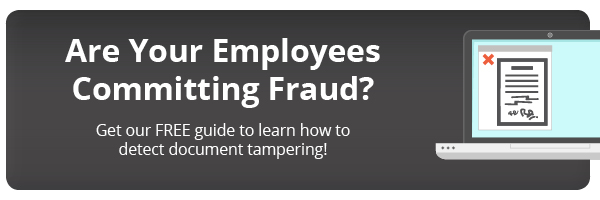
It’s hard to believe the holidays are upon us, and unfortunately so too are the fraudsters. This time of year, fraudsters ramp up their efforts to defaud credit union members who are distracted with the hustle and bustle of the season. It's essential to know what's going on with every piece of your finances. And I refer to “every bit” of your finances because that includes digital (high-tech) and paper (low-tech) fraud.
Low-tech fraud is still very much alive and well, especially during the holiday season. Credit unions and members can't become complacent about low-tech crimes. The criminal activities of yester-year—check fraud, theft of personal information from mailboxes, breaking into cars and homes to steal personal information—are just as prevalent today as they were decades ago.
The other day, I was thumbing through the last issue of the AARP magazine when I came across a feature article on the very subject that’s been nagging at me—protecting members from fraud and identity theft. The frightening, timely and relevant article was title, “She Stole My Life."
As I read the article, I was reminded about our industry’s aging membership base. I wonder how many credit unions truly engage their aging members and remind them about the importance of protecting their personal information. How many credit unions consistently educate their elderly members on what to look for and how to protect against fraud and identity theft?

Not sure what to tell your members about low-tech fraud? Here are 10 suggestions to help defend members against identity theft and fraud:
- Lock your mailbox or use a P.O. box
- Limit personal information that comes through the mail by getting online accounts for all bank and credit cards
- Never leave personal information in your car
- Shred any documents that contain personal information, such as bank and credit card statements, tax forms and medical bills
- Lock devices such as smart phones, laptops and tablets with passcodes to prevent unauthorized use in case they are lost or stolen
- Close out any old credit card accounts that you no longer use
- Don’t carry your Social Security card in your wallet or purse
- Check your bank account and credit card statements regularly
- Establish online accounts with three credit reporting agencies (Equifax, Experian and TransUnion)
- Put fraud alerts on your accounts with three credit bureaus
Want to learn more? The Federal Trade Commission provides excellent information and videos that you can use to educate your staff and members. Start by watching the Federal Trade Commission’s video on identity theft.
%20formatted-1.png?width=2528&height=739&name=SIGNiX%20Logo%20Main%20(white)%20formatted-1.png)

